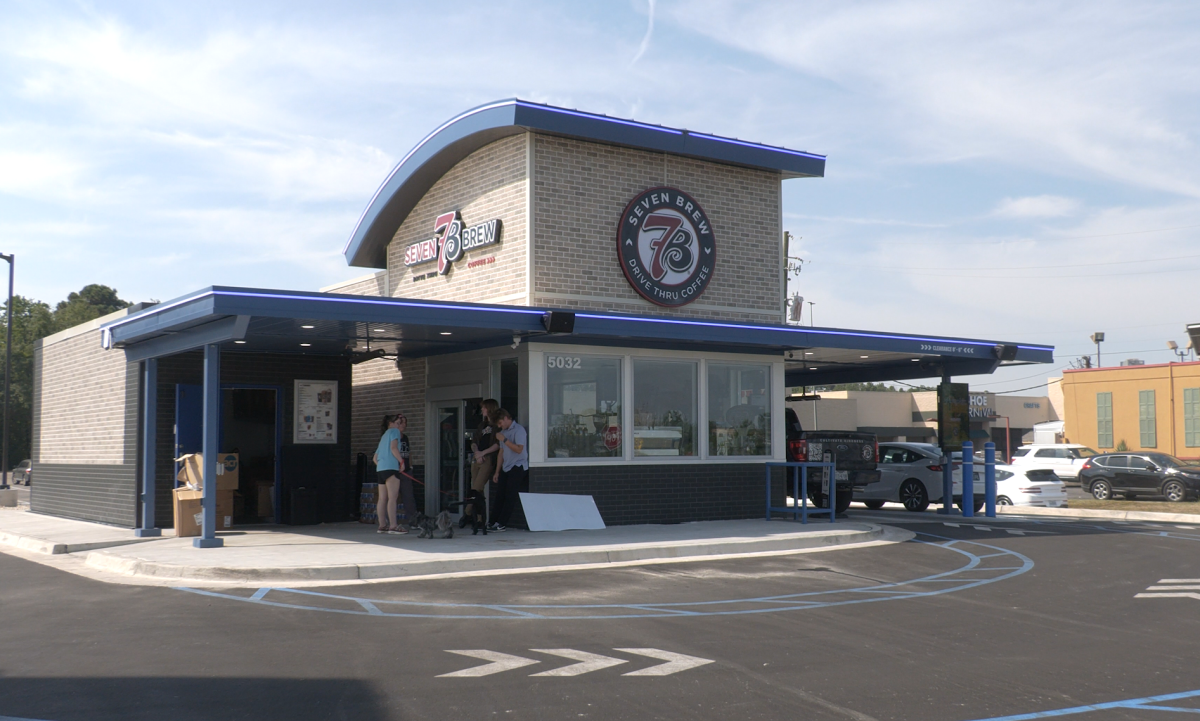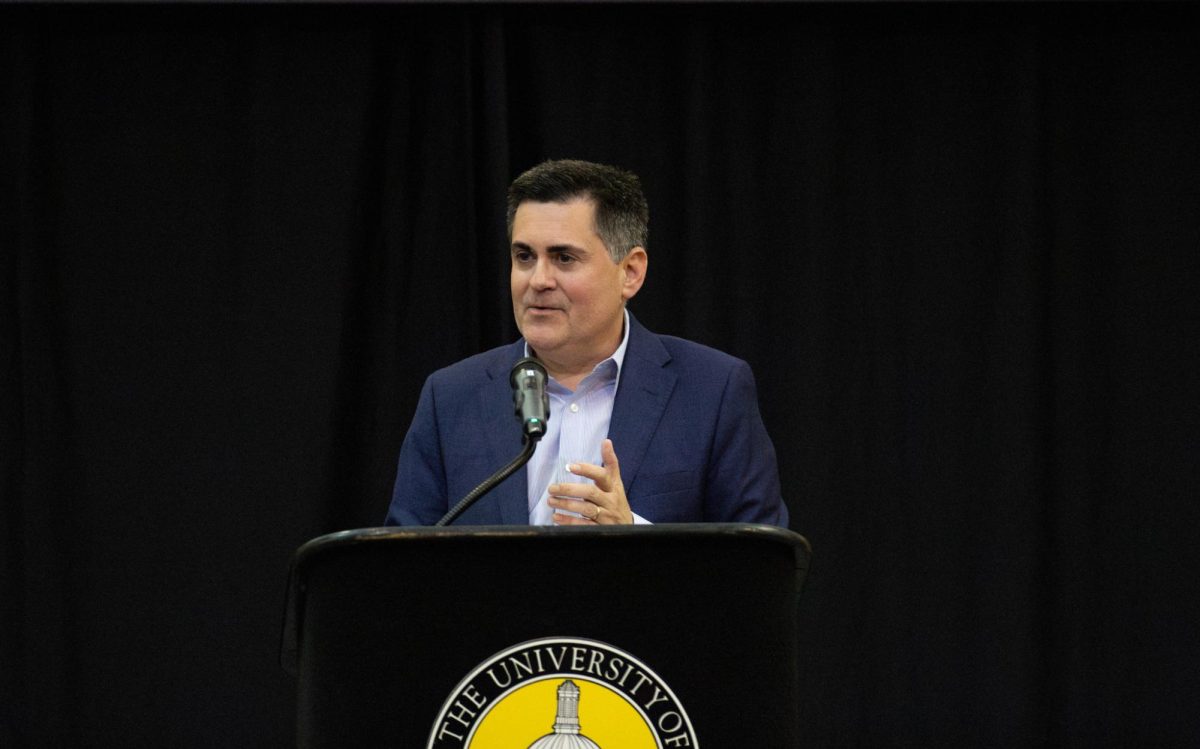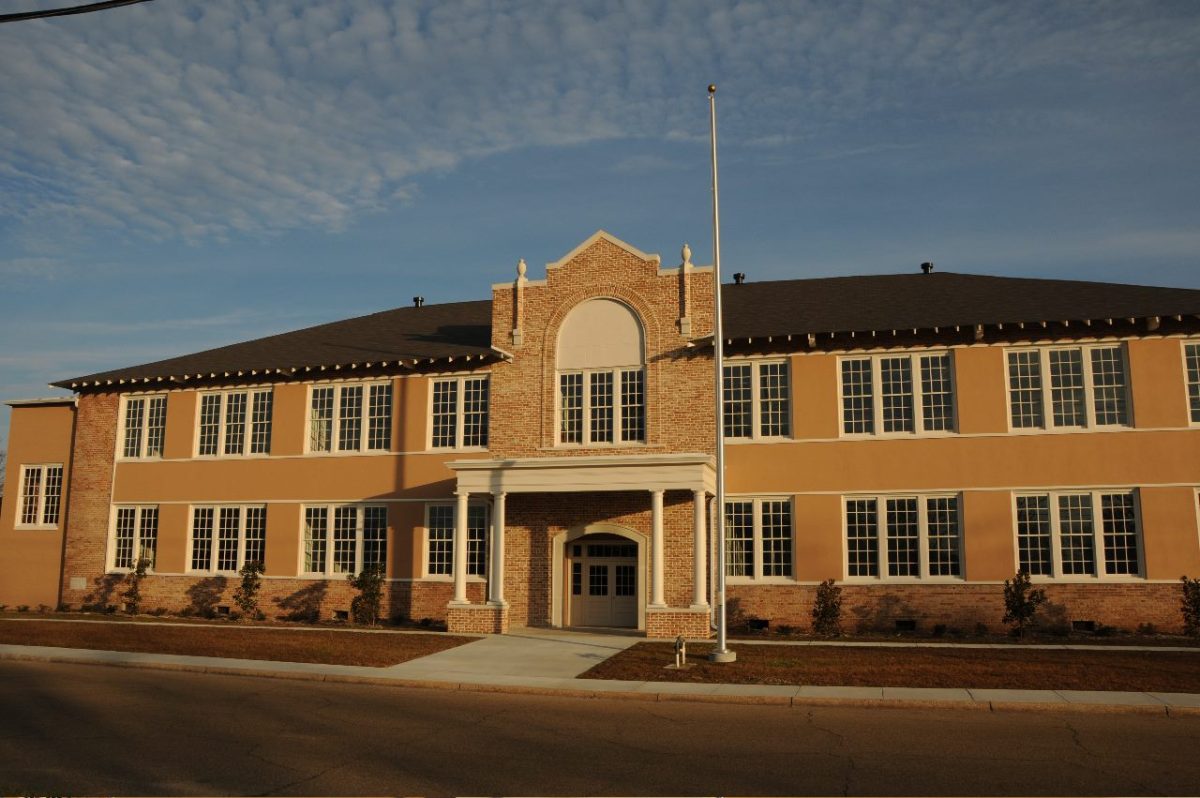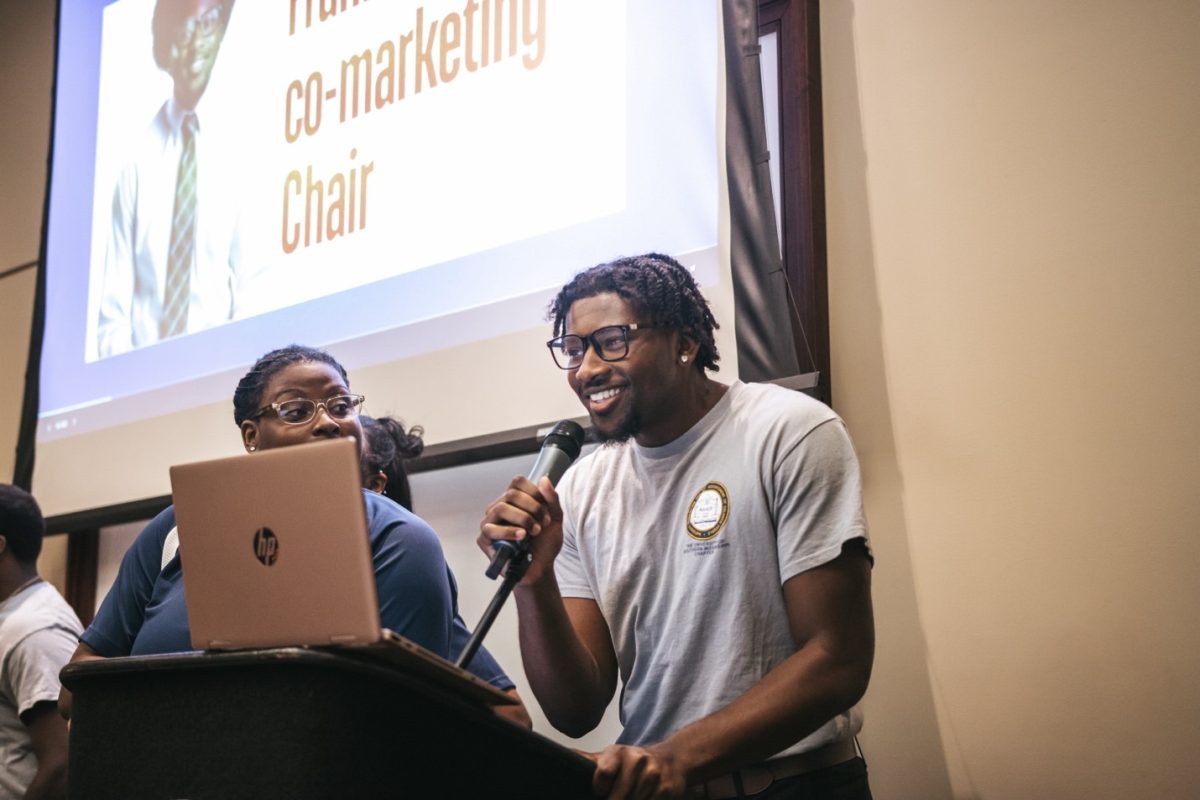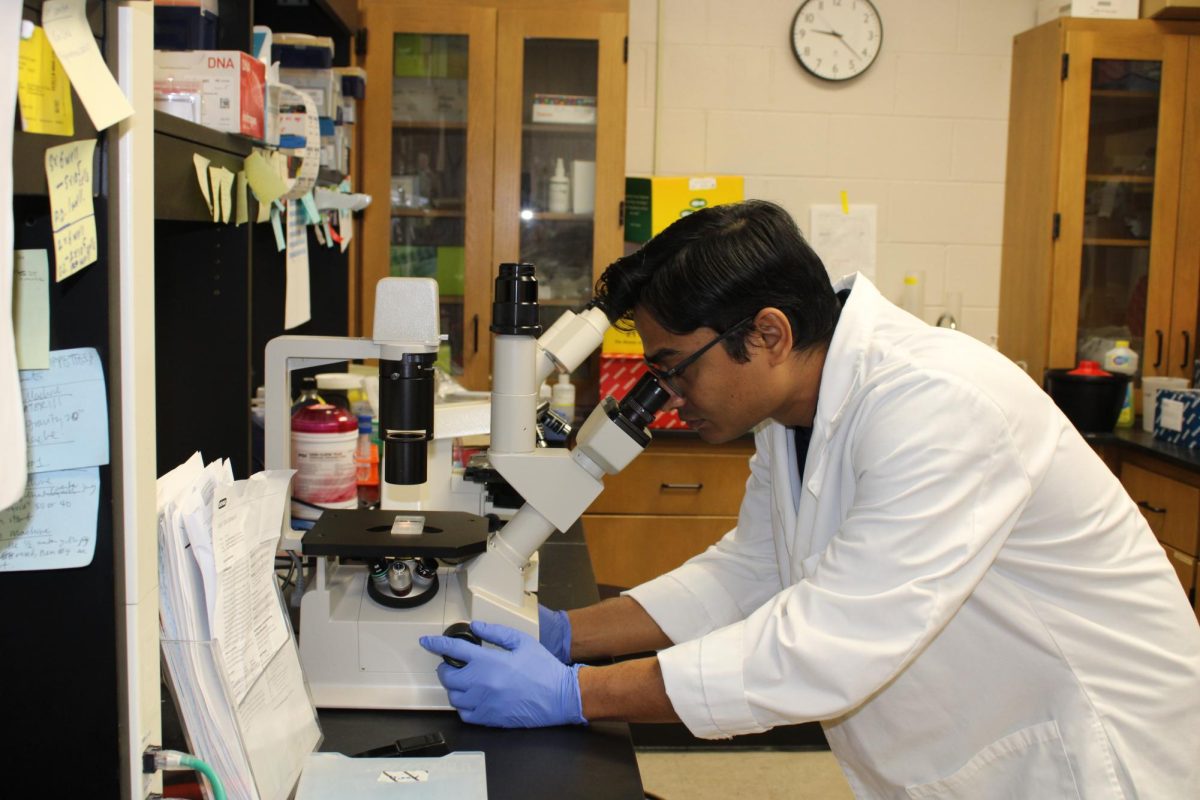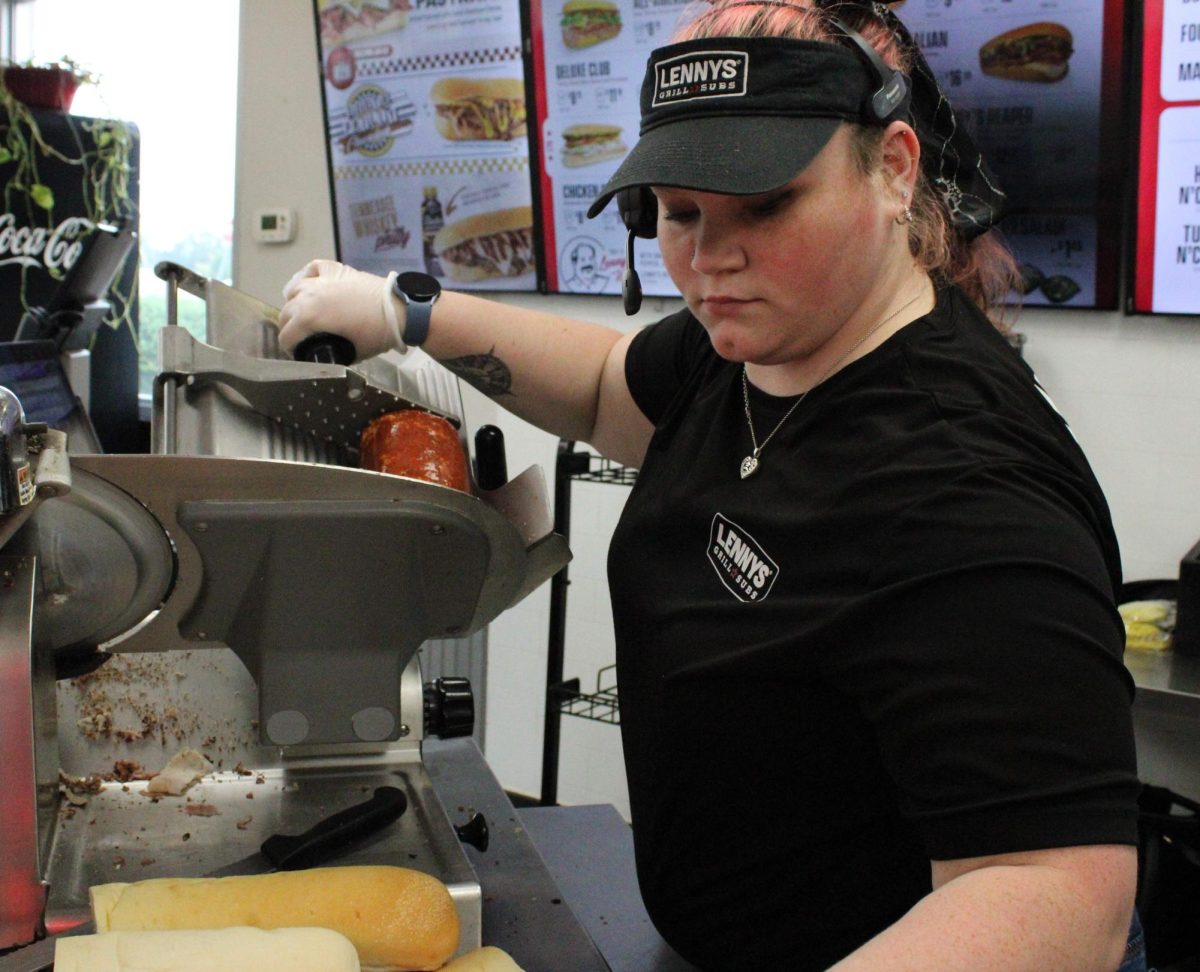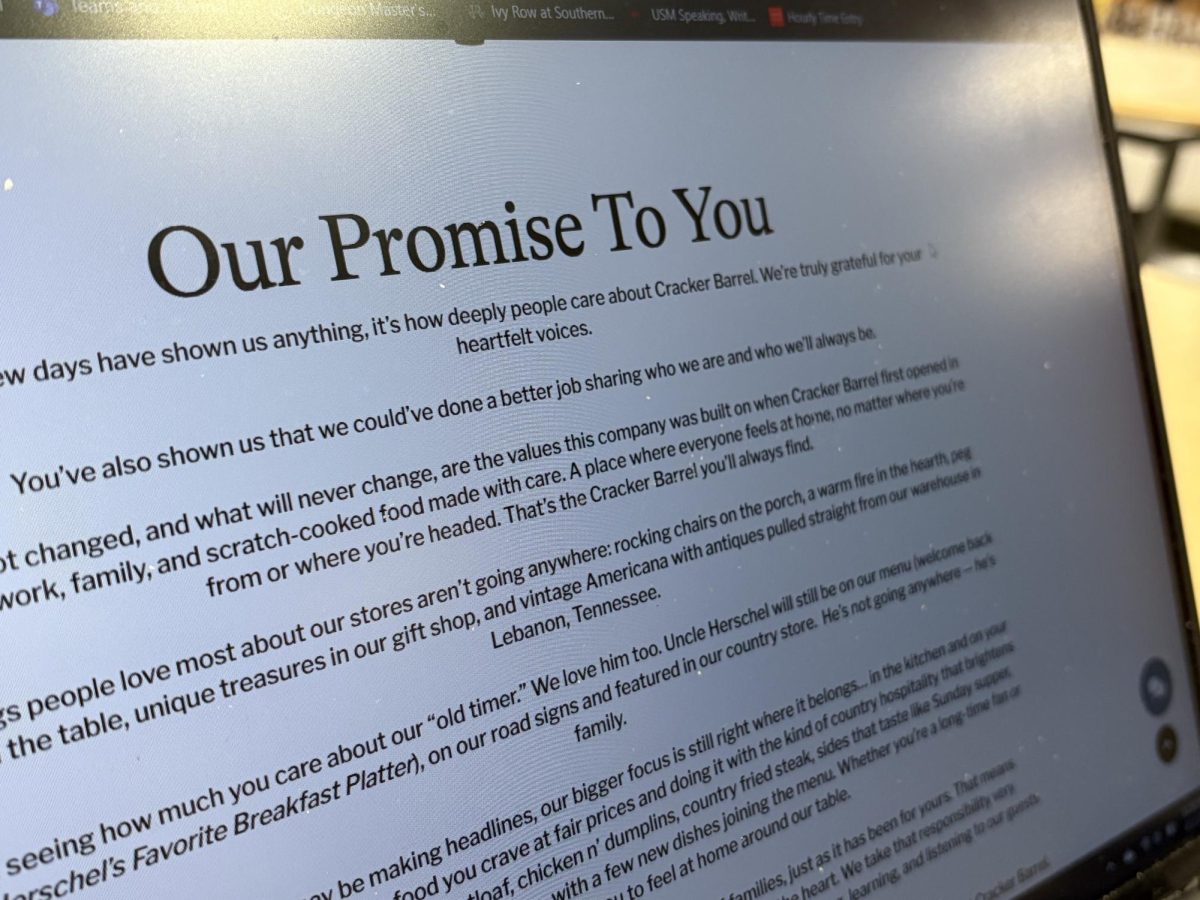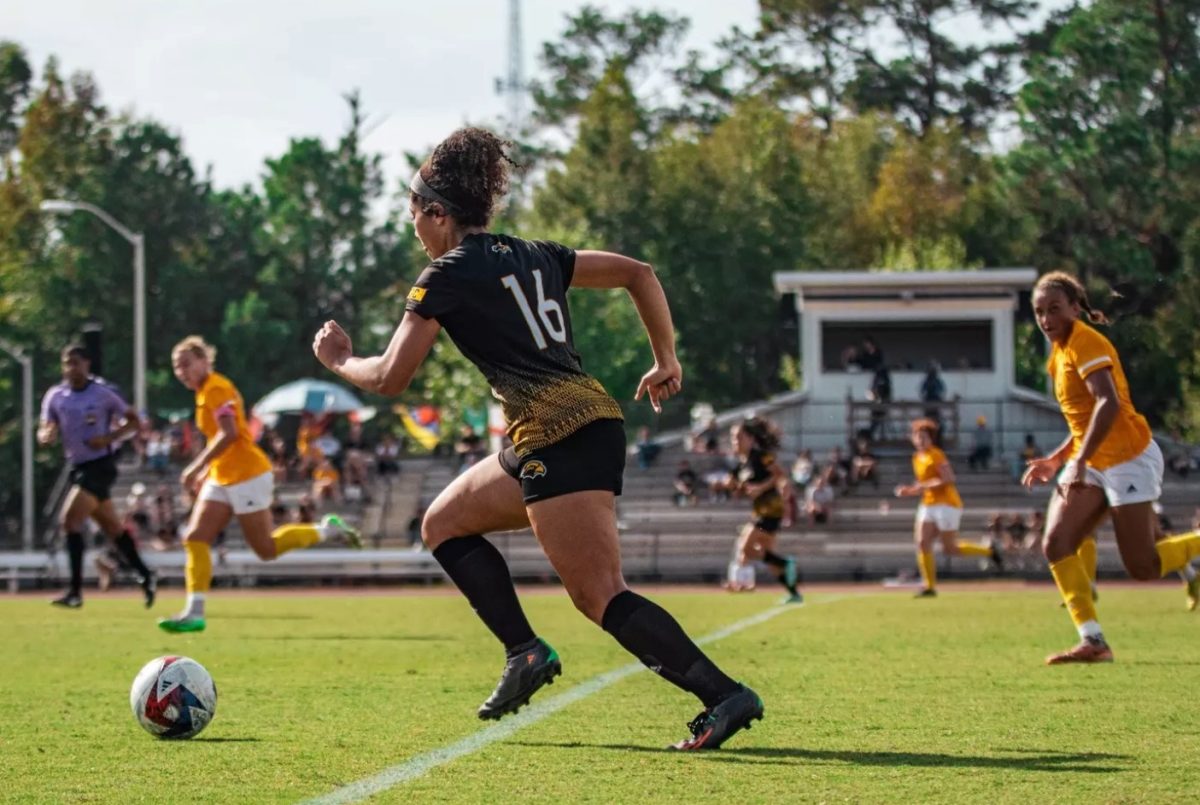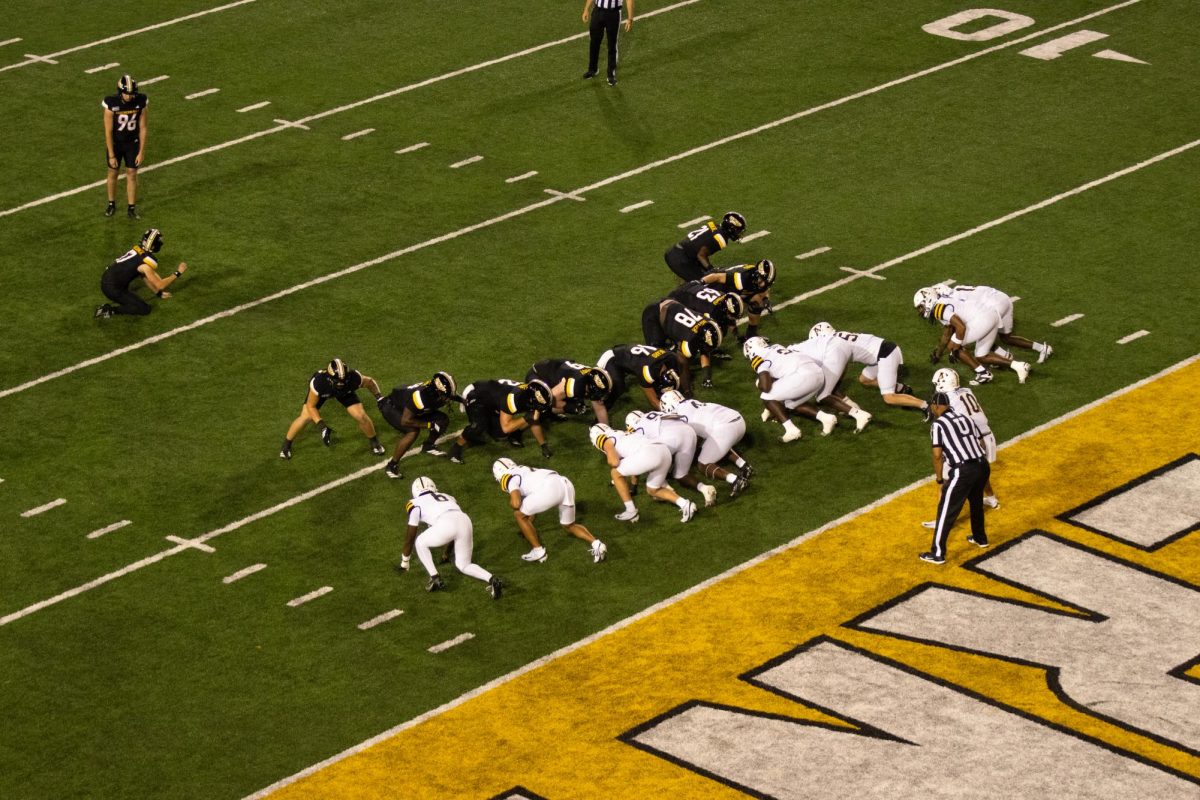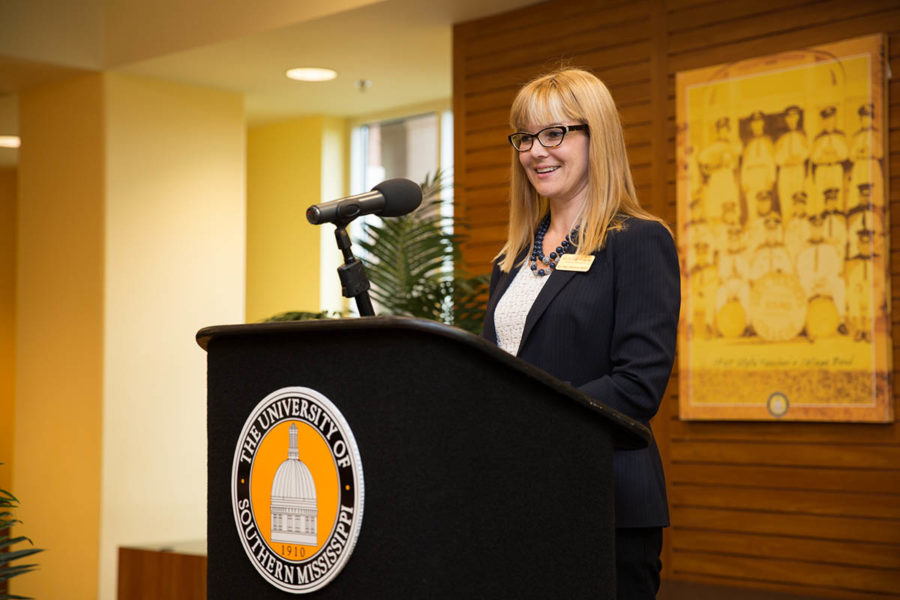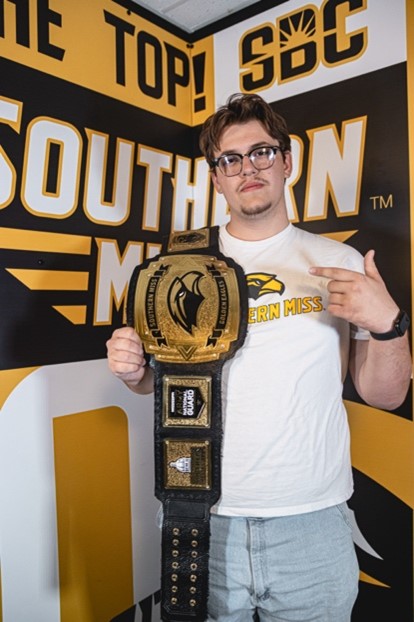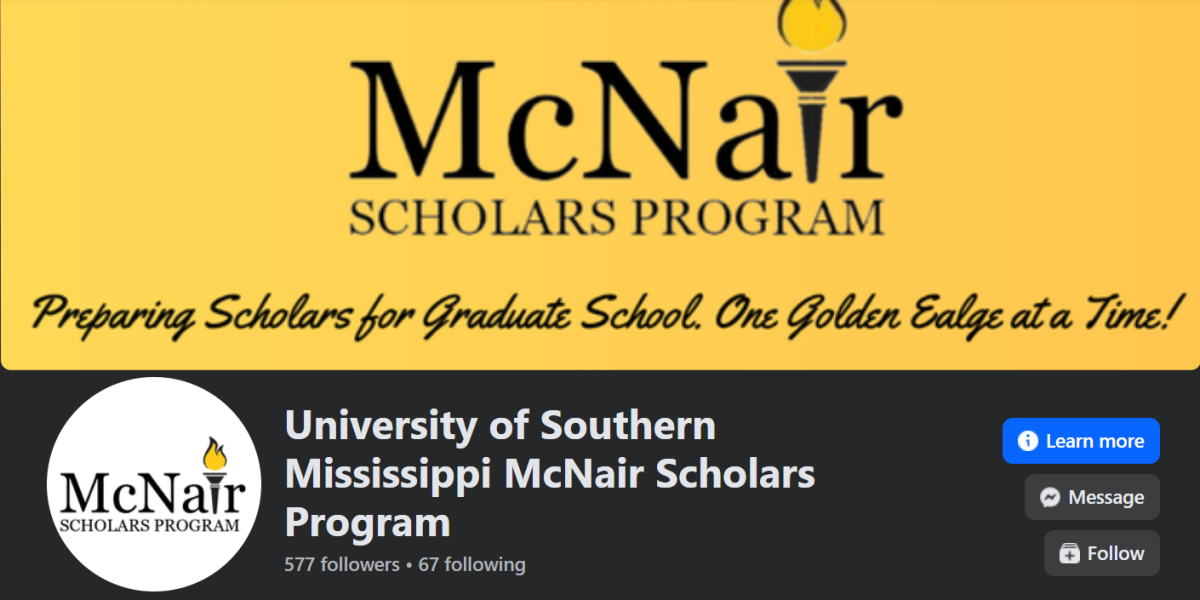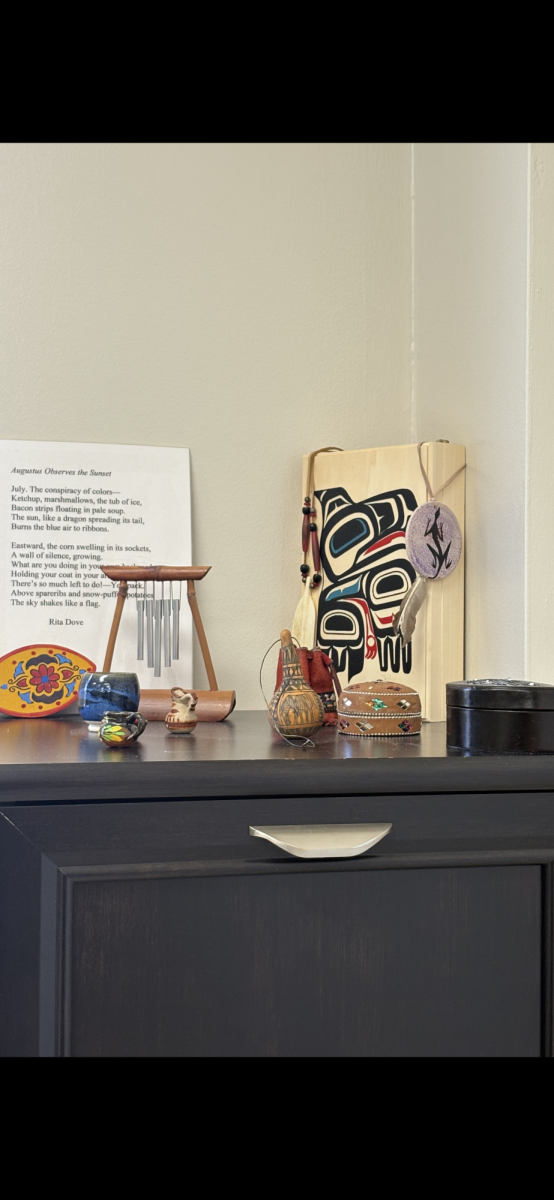At a university as large as Southern Miss, students may not always know the important people who affect their day-to- day lives on campus. Dr. Amy Miller is one of those individuals as she currently serves as the Vice Provost for Academic Affairs at USM. To help students know who Dr. Miller is, or even what the Office of Academic Affairs is for, we put together this Q and A with Dr. Miller.
Where did you complete your undergrad, graduate, and doctorate degrees?
My undergraduate degree is an interdisciplinary degree from the University of Alabama. I also earned an Associate’s degree from Calhoun Community College. I have a M.A. in Sociology from the University of Tennessee and a Ph.D. in Sociology from the University of Michigan.
What were some of the influencing factors in how you decided which degrees to pursue?
I know it can be a struggle to pick a major, because it feels like you are also deciding your career and that’s a lot of pressure on a student. For me, I focused on taking classes that interested me and that I thought would be beneficial for a variety of future possibilities. I had no idea what I wanted to do, which is how I ended up with an interdisciplinary degree. I took many classes in English, anthropology, political science and even Russian. By the time I graduated, I knew I was interested in studying political and social issues and human behavior, and I knew I wanted to go to graduate school to keep studying. I decided to apply to five programs in five fields and go to the best one I could go to for free. I was admitted and given a full assistantship at UT-Knoxville in sociology. That was the only sociology program I applied to, but that’s where I went. Lucky for me, I discovered I really loved sociology and wanted to continue, so after I finished my Master’s I knew I wanted to be a professor and I applied only to Ph.D. programs in sociology. I had some options, but I went to Michigan because it’s a great school and it was also a really different environment than my prior experiences. It was a great choice for me.
I always encourage students to be open to majors they haven’t thought about and might not have ever heard of. We have MANY degree programs and students often need to change their major once they realize what their options actually are. I suggest that students visit Career Services in their first year to do some assessments and try to identify their skills and interests; students should also talk to friends and faculty to ultimately find a major that will get them excited about what they are learning. Regardless of major, all students should work on their professional development – enhanced communication skills (oral and written), seek opportunities for hands-on experiences (like in research and/or internships), and get to know faculty who can help them think through your options. All of those things will help students find the right career path when they get to that point.
How did you become the Vice Provost for Academic Affairs at USM?
In 2015, I applied for the position of Associate Provost for Academic Excellence and was offered that job, which I started in July 2015. This position was a new position at Southern Miss, so the duties had not been fully fleshed out until I took the job and began doing the work. My role was to focus on student success and faculty development. Over the course of my first year, my duties expanded and I began working more and more on broad academic affairs areas in the Office of the Provost. As a result, my role was changed to Vice Provost to reflect my general role in the office.
How long have you held this position?
About 2.5 years.
As Vice Provost for Academic Affairs, what are some of your responsibilities and daily routines?
I work alongside Provost Moser to support the work of the Provost’s office in the academic affairs of the campus; I report to Dr. Moser, and he oversees my work. In some cases, I work directly with him on initiatives such as the academic reorganization underway. I also personally oversee some specific offices and areas. Some of the offices that directly report to me are the Registrar’s office, the Office of Online Learning, the Center for Faculty Development, the athletic academic support office, Career Services, the Luckyday Scholars Program, the Office of New Student and Retention Programs and the TRIO/Student Support Service program. I also am the point person in the Office of the Provost for academic concerns from students, including grade appeal processes.
Overall, my primary areas of responsibility include leading student success initiatives on campus and fostering faculty development. The various offices above report to me because they are part of the student success and faculty development efforts underway. My daily routine varies, but it’s always very busy and filled with meetings and email! Most days, I work with different committees, offices, and individuals to identify challenges to student success and then strategize about improvements that can be made. We are a campus that cares about students and we try to work collaboratively to find solutions to issues – then I work with various offices to ensure improvements are implemented. For example, a major discussion currently underway has to do with advisement and how we can improve the rates at which students get advised, the access students have to advisors, and the ease with which students are able to register for classes in a timely fashion. Our goal is for students to receive broad advisement support so that they can get settled in the right major for them early in their career, then register as early as possible each term and stay on track to graduation. I have been talking for more than a year with many different groups on campus about advisement practices and what is working well as well as what improvements we can make to better serve our students. Advisement varies a lot across Southern Miss, and different departments and colleges have their own policies and practices for how to advise students. In some areas, students are very satisfied and advisement runs smoothly, and in other areas we face challenges with getting students to advisement and registration. We are committed to finding new solutions to better support our students, advising staff, and faculty on campus. You can expect more news on that in 2018!
What do you wish students knew about your position?
I’m not sure – I think some students know me and what I do fairly well, and others have no idea what our office does, just because we haven’t crossed paths. I wish more students had a sense of how the university is organized and which offices are responsible for what, and that’s something we need to do a better job of communicating. I also want students to know that I am here to help – we want to help students transition successfully from high school or to transfer from another institution smoothly into Southern Miss. I know there’s a lot to learn when you first get to a new school, and we want to set up our institution so that students learn how to be successful quickly and are empowered to chart their own paths to graduation (and professional success after that). I am always open to feedback from students about what is working well for them and what we need to work on.
What is your favorite thing about your job?
Finding solutions to problems. When we become aware of an issue and then are able to come up with an improvement or a fix for a problem, it’s a great feeling. We are committed to continuously improving students’ experiences and learning opportunities at Southern Miss, and it’s an honor to be part of that.
Can you give an example of a problem that students should feel comfortable communicating with you?
If students have ideas or observations about patterns they’ve noticed in why students don’t stay at Southern Miss or things that really help students to thrive, I am always interested in hearing from them about their insights. So, for instance, I want to know about great advisors, great online teachers/programs, great support from faculty or staff, and also areas where we need to improve, if there’s a pattern at work that’s making it hard for students in general to do something well. Students should also feel comfortable reaching out to be about policy questions and I can try to clarify or explain anything that’s fuzzy.
In terms of whether to contact me first, it depends on the issue. If the question is about Financial Aid or Scholarships, for example, I’m always going to direct them to those offices, as they are the experts, so they should just start there first. Similarly, sometimes students contact me about a professor they are having issues with – those concerns need to start with the professor, then that person’s chair or director. Usually situations can be resolved there, but if not they will make their way to my office. There’s a chain of command from the instructor to the chair then to the Dean, so I will always ask students to go that route about academic concerns/complaints about particular classes or people; it will save them time to go that route first.

